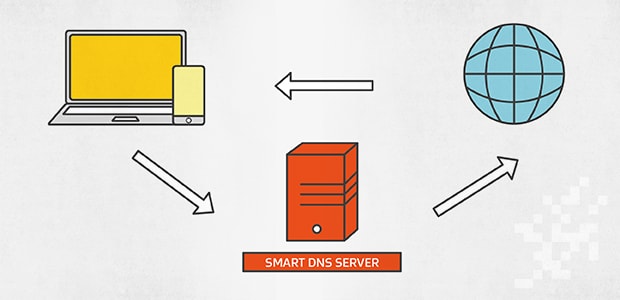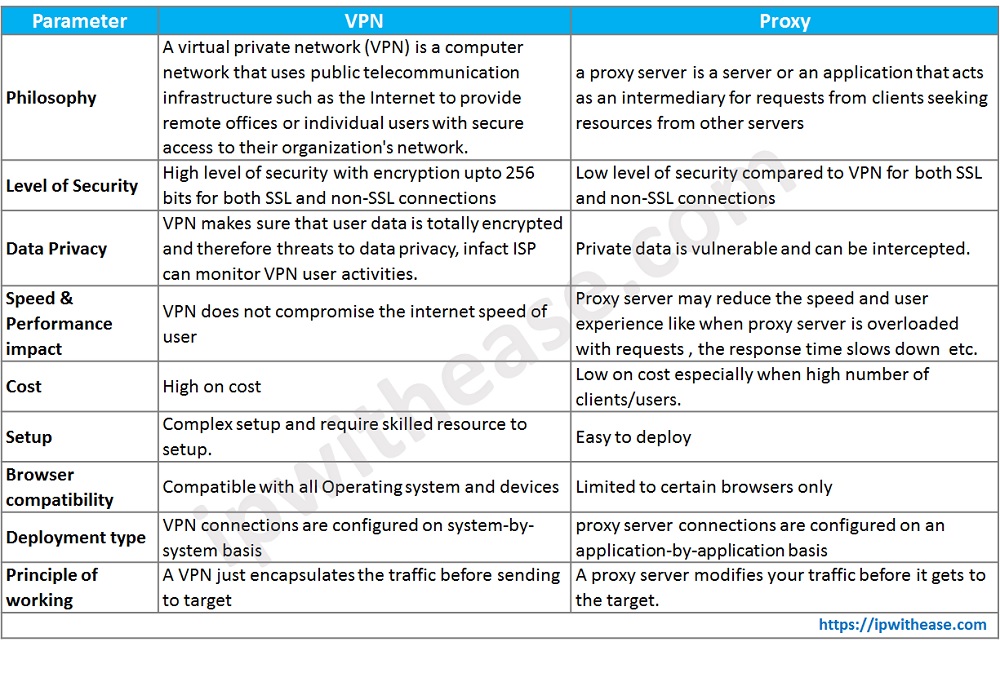Featured
Table of Contents
Vpn Vs Proxy Vs Tor: What Are The Differences?
SOCKS5 is not the like a VPN. Rather, SOCKS5 is a type of proxy server that's normally used for online video gaming, sharing files or video talking on a single site or app. VPNs, on the other hand, secure all web activity throughout all websites and apps.
For this reason, some users pay for a private proxy server which restricts the number of users that access it, speeding up your connections. Proxies are also vulnerable to security exploits: they can be open to attack, allowing the bad men to infiltrate networks or steal private data. Some proxies can still track (and store) your browsing habits, along with tape-recording usernames and passwords rendering that guarantee of anonymity null.
VPNs use a local customer to create the connection to the VPN server, so any local CPU or memory concerns will decrease the connections. VPNs are generally more pricey to use (and maintain) than a proxy server, and they are frequently more complex to handle. Just like proxy servers, VPNs can't ensure privacy while browsing.
A VPN just guarantees an end-to-end encrypted connection if you use the HTTPS protocol when you go to a new web address. Your data will be secured to the VPN, but from that point on, it might be unencrypted to the web server. For some websites, this might be unimportant: an information-only website without any login or payment options for instance, but for any websites that require a login or online payments or any delicate data make certain the website is made it possible for to use HTTPS.
Difference Between Proxy And Vpn
The most significant argument to utilize a VPN rather of a proxy is the total file encryption for all traffic you get with the VPN. Dollar for dollar, a VPN is more protected than a similarly priced proxy. VPN providers preserve their own networks and you utilize their IP addresses for your connections.
Personal privacy and security matter nowadays, despite if it's your company information or your own individual information you need to protect. Make certain you're investing money and time into the right tools for your security objectives: both proxies and VPNs add an additional layer of security and personal privacy to your data.

If your issues are more around "what sites are my users striking," a proxy server is a better tool. To get one of the most bang for the dollar (and to secure your data as a security-aware citizen), sign up for a well-regarded VPN service. For the most part, VPN services enable you to use servers in different areas to work around content constraints.

If you're worried about your personal privacy when using the web, you may have thought about using either a VPN or a proxy server. Both increase the security of your web connection, however how precisely do they work, and how do they differ? If you are seeking to improve your online privacy, it is essential to understand the difference in between VPNs and proxy servers to ensure you're selecting the best tool for the task.
Difference Between Proxy Server And Vpn - Youtube
How they accomplish that and the degree to which they offer other personal privacy functions varies significantly. Typically, when web browsing, your computer connects to a site directly and starts downloading pages for you to check out. This process is uncomplicated. When you utilize a proxy server, your computer sends all web traffic to the proxy.
VPNs work on the operating system level. This means that they redirect all your traffic, whether originating from your web browser or an app. They likewise encrypt traffic between the web and your device. As an outcome, your Web Service Company (ISP) can't see what you're doing online just that you're linked to a VPN server.


While speeds differ from company to company, VPNs are normally the quicker alternative. It isn't an excellent concept to use a free VPN service because they are restricted in what they can offer and tend to mine your data. As a result, users tend to select paid-for VPNs, which supply higher data file encryption and are more safe.
This means that, in general, VPNs tend to be the more expensive alternative. VPNs work on the operating system level and reroute all your traffic through a VPN server, while proxies deal with the application level and only reroute the traffic of a specific app or browser. This means that VPNs encrypt all web activity, regardless of site or app, while proxy servers just conceal one website or app at a time.
Vpn Vs. Proxy: Which One To Use?
Proxy servers aren't just used to open specific sites. Particular organizations business, schools, or libraries or maybe parents may desire to set up a transparent proxy to obstruct or filter users' material when utilizing the web.
Latest Posts
The 5 Best Vpn Services For The Bay Area
Which Vpn Is Best For My Business?
Best Free Vpn For Business In 2023